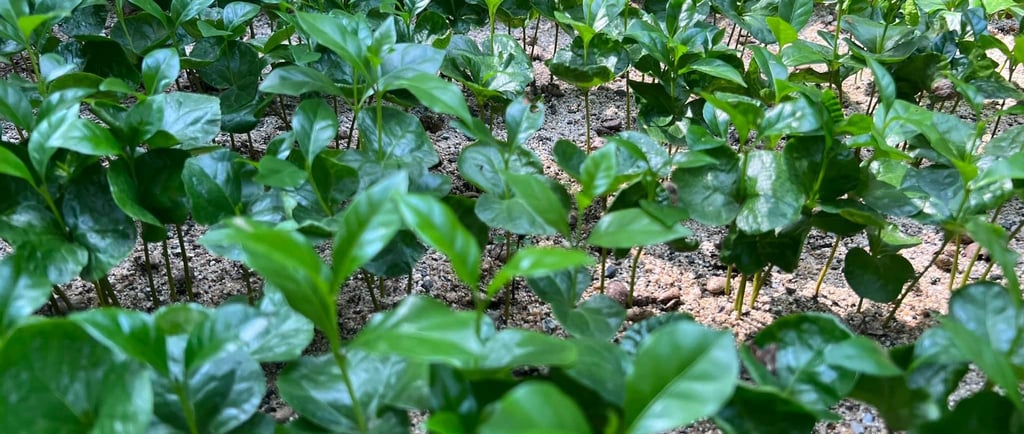Free shipping on orders from $61 CAD - Get 7% Cashback with Neo!
Why Mexican Coffee is So Good?
Learn what makes Mexican coffee so special, from its ideal volcanic soil to sustainable farming practices. Explore the unique flavors of Chiapas and Veracruz, and discover the cultural heritage behind every cup.
COFFEE EDUCATION
Frida Murillo
3/5/20252 min read


Why Mexican Coffee is So Good: A Deep Dive into Its Unique Characteristics
Mexican coffee is renowned for its rich, bold flavors and centuries-old growing traditions. From its high-altitude growing regions to its volcanic soil, there's more to Mexican coffee than meets the eye. Let's explore what makes Mexican coffee stand out among the world’s finest beans.
1. Ideal Growing Conditions: Altitude and Climate
Mexico’s diverse geography offers perfect conditions for coffee cultivation, particularly the high-altitude regions of the country.
Altitude Mastery: Grown between 1,000 and 2,000 meters above sea level, Mexican coffee benefits from cooler temperatures and slower bean development. This slow maturation process results in denser beans packed with complex flavors that are often sweeter and more aromatic.
Microclimates: Mexico’s varied climate and mountainous terrain create microclimates, allowing different regions to produce beans with distinct profiles. Temperature variations at these high altitudes help enhance the beans' acidity, balance, and overall flavor complexity.
2. Volcanic Soil: The Heart of Flavor
The rich volcanic soil in Mexico’s coffee-growing regions contributes to the beans’ exceptional quality. This fertile soil is full of essential minerals, providing the perfect foundation for high-quality coffee beans.
Mineral-Rich Soil: Volcanic soil is naturally rich in minerals like potassium, calcium, and magnesium, all of which play a crucial role in developing the beans' rich flavor profiles.
Optimal Drainage: The porous volcanic soil allows for excellent water drainage, preventing root rot and ensuring that coffee plants remain healthy, leading to beans with a clean, crisp taste.
3. Regional Excellence: Diversity in Flavor Profiles
Different regions in Mexico produce coffee with unique flavors, thanks to the diverse growing conditions and traditions.
Chiapas: As the largest coffee-producing state in Mexico, Chiapas is known for its bright, clean flavors. Coffee from this region typically features a crisp acidity with citrus notes and is often grown at high altitudes, contributing to its complex, refined taste.
Veracruz: Veracruz coffee is prized for its smooth, balanced profile. Grown in volcanic soil with a history of traditional cultivation methods, Veracruz beans often have subtle sweet undertones, making them perfect for a well-rounded cup of coffee.
4. Sustainable Growing Practices: A Legacy of Tradition
Mexican coffee growers have long adhered to sustainable farming practices, passed down through generations. These practices not only ensure high-quality beans but also protect the environment.
Shade-Grown Coffee: Much of Mexico’s coffee is grown under the shade of native trees, preserving biodiversity and promoting a healthier ecosystem. This method helps regulate temperature, protects soil from erosion, and reduces the need for artificial fertilizers.
Hand-Picked Harvests: Coffee cherries in Mexico are typically hand-picked to ensure that only the ripest cherries make it to the processing stage. This careful selection process results in a more consistent and high-quality product.
Natural Processing Methods: Many Mexican coffee producers use natural or washed processing methods, which preserve the inherent flavors of the beans and contribute to a cleaner, more refined cup.
5. Cultural Significance: Coffee as a Tradition
In Mexico, coffee is more than just a beverage—it’s a part of the culture and tradition. From the ceremonial café de olla (a spiced coffee traditionally brewed with cinnamon and piloncillo) to artisanal espresso, Mexican coffee offers a taste of the country’s rich history.
Generational Expertise: Many coffee producers come from multi-generational families who have honed their craft over decades. This deep-rooted knowledge of the land and coffee cultivation is reflected in the high quality and consistency of Mexican coffee.


